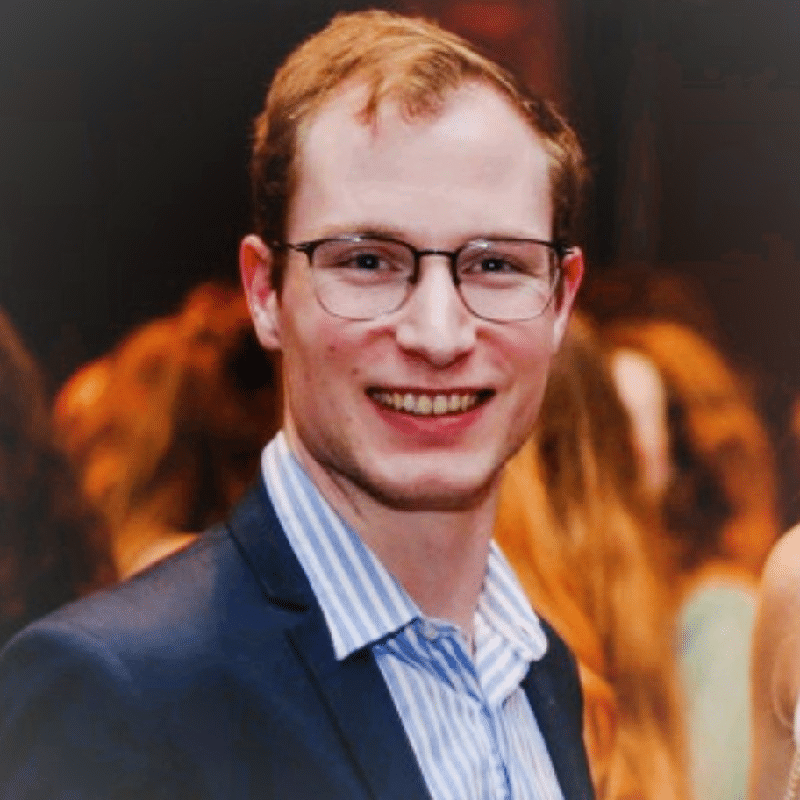
UK Summer School , 2011
Neil McCallum
Senior Translation Project Manager
Neil took part in a Sutton Trust Summer School in 2011 and went on to study languages at university. Having studied and...Tell us a little bit about your background
I had quite a tumultuous childhood. My parents had their own business which meant I moved between schools and areas a lot. For a few years we lived in Oxford; I loved the student atmosphere there and I’m sure that influenced my desire to go to university. Although my mum didn’t finish high school and my dad dropped out of university in his first year, they were very supportive of my ambition. Luckily, I also had extremely helpful teachers who motivated me to work hard.
Around that time, my parents ended up going bankrupt and separating. My mum and I decided we’d move up to Scotland, but it would take time to figure out the logistics. I didn’t want to start A-Levels and switch over to Highers half-way through, so at 16 I moved to Scotland ahead of her, staying with some family friends for a few months. Although it was difficult, I think all these experiences have helped to make me very adaptable!
How did you hear about the UK Summer School and what was your experience on it like?
In the summer before I moved to Scotland, I had some work experience at the Sackler Library with another girl who’d just been on a Summer School. She told me all about it and I thought, wow, that sounds amazing. When I looked it up later, I saw that there was also a Summer School in Scotland which seemed even more fantastic.
My experience at the Summer School was even better than I could have imagined; I loved being away from home, meeting people with similar backgrounds who were also excited to learn, and I fell in love with St Andrews. At the time, choosing what to study at university felt like the hardest decision of my life. I loved every subject (apart from PE) and my course choices for my Summer School reflected that. My first choice was physics and astronomy, then international relations, then history, then biology. In the end I got my first choice and I’m so glad. Perhaps the most important part of the week was that it reassured me I was not only good enough to do physics and astronomy at university, but that I would enjoy it.
How did your career progress after the programme?
After the programme I returned to St Andrews to study astrophysics. One of the main advantages of studying there was the four-year bachelors, which made it easier to spend a year abroad – something I knew I wanted to experience. For my third year I studied in Canada as a Bobby Jones Scholar, it was incredibly rewarding but also one of the most challenging things I’ve ever done.
After my bachelors I was accepted onto AstroMundus, a two-year long Erasmus-funded masters where you rotate to a new country each semester. I started out in Innsbruck in Austria, then Padova in Italy, then Belgrade in Serbia and then back to Innsbruck for my research thesis. My experiences over those two years really elevated my adaptability to the next level and taught me things about myself that I never would have learned if I had stayed in the UK.
I’m now doing my PhD in the Astrophysics Research Institute at Liverpool John Moores University. The focus of my research is on stellar clusters, looking at how groups of hundreds of thousands of stars move, in order to understand how these structures evolved over billions of years. Doing a PhD hasn’t been easy, especially in the first few months when my imposter syndrome was at its worst. At the beginning everyone seems so much cleverer than you and you feel like you know nothing, but once you’re through that stage and you realise that it’s all in your head, things get easier. I’ve been very lucky to have two incredible supervisors who are happy to listen at any time, and they’ve also been really supportive of my outreach work.
What are your ambitions for the future?
My ultimate dream is to get into the science of science communication. It’s a new field that’s only about 20 years old which looks at how scientists engage with the public, and how the public perceives science.
Over the years I’ve done a lot of outreach work. One of my greatest passions is the International Astronomical Youth Camp – in 2016 I was the main organiser and brought the camp to the UK for the first time in its 50-year history. I’ve also worked with Scientists for Palestine, I was a science journalism intern at the European Southern Observatory, and I was editor-in-chief of a student physics journal, called jIAPS.
In astrophysics you usually spend your days sat at a computer screen programming and making plots. Lots of people love that, but I’ve learned that it’s not for me. I’m much more passionate about sharing astronomy and connecting people. Everyone can see the stars – it doesn’t matter who you are or which country you’re from – so it’s a great way to get people involved in science.
Any advice for future Sutton Trust students?
This was advice Jocelyn Bell Burnell, the famous astronomer gave to me: “If there’s something you want to do, just go for it. Don’t think about it, don’t give yourself the time to start doubting yourself. Go for it, give it your best, and most of all, enjoy it.”
Get in touch if you’d like to share your story via [email protected]
Browse our library of alumni stories